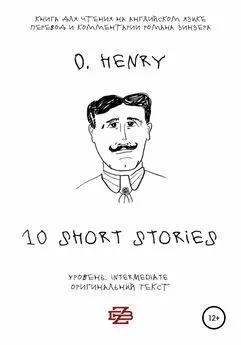Somerset Maugham - Sixty-Five Short Stories
- Название:Sixty-Five Short Stories
- Автор:
- Жанр:
- Издательство:неизвестно
- Год:неизвестен
- ISBN:нет данных
- Рейтинг:
- Избранное:Добавить в избранное
-
Отзывы:
-
Ваша оценка:
Somerset Maugham - Sixty-Five Short Stories краткое содержание
Sixty-Five Short Stories - читать онлайн бесплатно полную версию (весь текст целиком)
Интервал:
Закладка:
'With Lola Montez it was pearls,' I said ironically. 'I believe they were considerably damaged.'
'Pearls?' She gave that brilliant smile of hers. 'Have I ever told you about Benjy Riesenbaum and the pearls? You might make a story out of it.'
Benjy Riesenbaum was a person of great wealth, but it was common knowledge that for a long time he had been the Falterona's lover. In fact it was he who had bought her the luxurious little villa in which we were now sitting.
'He'd given me a very handsome string in New York. I was singing at the Metropolitan, and at the end of the season we travelled back to Europe together. You never knew him, did you?'
'No.'
'Well, he wasn't bad in some ways, but he was insanely jealous. We had a row on the boat because a young Italian officer was paying me a good deal of attention. Heaven knows, I'm the easiest woman in the world to get on with, but I will not be bullied by any man. After all, I have my self-respect to think of. I told him where he got off, if you understand what I mean, and he slapped my face. On deck if you please. I don't mind telling you I was mad. I tore the string of pearls off my neck and flung it in the sea. "They cost fifty thousand dollars," he gasped. He went white. I drew myself up to my full height. "I only valued them because I loved you," I said. And I turned on my heel.'
'You were a fool,' I said.
'I wouldn't speak to him for twenty-four hours. At the end of that time I had him eating out of my hand. When we got to Paris the first thing he did was to go to Cartier's and buy me another just as good.'
She began to giggle.
'Did you say I was a fool? I'd left the real string in the bank in New York, because I knew I was going back next season. It was an imitation one that I threw in the sea.'
She started to laugh, and her laugh was rich and joyous and like a child's. That was the sort of trick that thoroughly appealed to her. She chortled with glee.
'What fools men are,' she gasped. 'And you, you thought I'd throw a real string into the sea.'
She laughed and laughed. At last she stopped. She was excited.
'I want to sing. Glaser, play an accompaniment.'
A voice came from the drawing-room.
'You can't sing after all that food you walloped down.'
'Shut up, you old cow. Play something, I tell you.'
There was no reply, but in a moment Miss Glaser began to play the opening bars of one of Schumann's songs. It was no strain on the voice, and I guessed that Miss Glaser knew what she was doing when she chose it. La Falterona began to sing, in an undertone, but as she heard the sounds come from her lips and found that they were clear and pure she let herself go. The song finished. There was silence. Miss Glaser had heard that La Falterona was in magnificent voice, and she sensed that she wished to sing again. The prima donna was standing in the window, with her back to the lighted room, and she looked out at the darkly shining sea. The cedar made a lovely pattern against the sky. The night was soft and balmy. Miss Glaser played a couple of bars. A cold shiver ran down my spine. La Falterona gave a little start as she recognized the music, and I felt her gather herself together:
Mild und leise wie er lächelt
Wie das Auge er Г¶ffnet.
It was Isolde's death song. She had never sung in Wagner, fearing the strain on her voice, but this, I suppose, she had often sung in concerts. It did not matter now that instead of an orchestral accompaniment she had only the thin tinkle of a piano. The notes of the heavenly melody fell upon the still air and travelled over the water. In that too romantic scene, in that starry night, the effect was shattering. La Falterona's voice, even now, was exquisite in its quality, mellow and crystalline; and she sang with wonderful emotion, so tenderly, with such tragic, beautiful anguish that my heart melted within me. I had a most awkward lump in my throat when she finished, and looking at her I saw that tears were streaming down her face. I did not want to speak. She stood quite still looking out at that ageless sea.
What a strange woman! I thought then that I would sooner have her as she was, with her monstrous faults, than as Peter Melrose saw her, a pattern of all the virtues. But then people blame me because I rather like people who are a little worse than is reasonable. She was hateful, of course, but she was irresistible.
The Unconquered
He came back into the kitchen. The man was still on the floor, lying where he had hit him, and his face was bloody. He was moaning. The woman had backed against the wall and was staring with terrified eyes at Willi, his friend, and when he came in she gave a gasp and broke into loud sobbing. Willi was sitting at the table, his revolver in his hand, with a half empty glass of wine beside him. Hans went up to the table, filled his glass and emptied it at a gulp.
'You look as though you'd had trouble, young fellow,' said Willi with a grin.
Hans's face was blood-stained and you could see the gashes of five sharp finger-nails. He put his hand gingerly to his cheek.
'She'd have scratched my eyes out if she could, the bitch. I shall have to put some iodine on. But she's all right now. You go along.'
'I don't know. Shall I? It's getting late.'
'Don't be a fool. You're a man, aren't you? What if it is getting late? We lost our way.'
It was still light and the westering sun streamed into the kitchen windows of the farm-house. Willi hesitated a moment. He was a little fellow, dark and thin-faced, a dress designer in civil life, and he didn't want Hans to think him a cissy. He got up and went towards the door through which Hans had come. When the woman saw what he was going to do she gave a shriek and sprang forwards.
'Non, non,' she cried.
With one step Hans was in front of her. He seized her by the shoulders and flung her violently back. She tottered and fell. He took Willi's revolver.
'Stop still, both of you,' he rasped in French, but with his guttural German accent. He nodded his head towards the door. 'Go on. I'll look after them.'
Willi went out, but in a moment was back again.
'She's unconscious.'
'Well, what of it?'
'I can't. It's no good.'
'Stupid, that's what you are. Ein Weibchen. A woman.'
Willi flushed.
'We'd better be getting on our way.'
Hans shrugged a scornful shoulder.
'I'll just finish the bottle of wine and then we'll go.'
He was feeling at ease and it would have been pleasant to linger. He had been on the job since morning and after so many hours on his motor-cycle his limbs ached. Luckily they hadn't far to go, only to Soissons-ten or fifteen kilometres. He wondered if he'd have the luck to get a bed to sleep in. Of course all this wouldn't have happened if the girl hadn't been a fool. They had lost their way, he and Willi, they had stopped a peasant working in a field and he had deliberately misled them, and they found themselves on a side road. When they came to the farm they stopped to ask for a direction. They'd asked very politely, for orders were to treat the French population well as long as they behaved themselves. The door was opened for them by the girl and she said she didn't know the way to Soissons, so they pushed in; then the woman, her mother, Hans guessed, told them. The three of them, the farmer, his wife and daughter, had just finished supper and there was a bottle of wine on the table. It reminded Hans that he was as thirsty as the devil. The day had been sweltering and he hadn't had a drink since noon. He asked them for a bottle of wine and Willi had added that they would pay them well for it. Willi was a good little chap, but soft. After all, they were the victors. Where was the French army? In headlong flight. And the English, leaving everything behind, had scuttled like rabbits back to their island. The conquerors took what they wanted, didn't they? But Willi had worked at a Paris dressmaker's for two years. It's true he spoke French well, that's why he had his present job, but it had done something to him. A decadent people. It did a German no good to live among them.
The farmer's wife put a couple of bottles of wine on the table and Willi took twenty francs out of his pocket and gave it to her. She didn't even say thank you. Hans's French wasn't as good as Willi's, but he could make himself understood, and he and Willi spoke it together all the time. Willi corrected his mistakes. It was because Willi was so useful to him in this way that he had made him his friend, and he knew that Willi admired him. He admired him because he was so tall, slim, and broad-shouldered, because his curly hair was so fair and his eyes so blue. He never lost an opportunity to practise his French, and he tried to talk now, but those three French people wouldn't meet him half-way. He told them that he was a farmer's son himself and when the war was over was going back to the farm. He had been sent to school in Munich because his mother wanted him to go into business, but his heart wasn't in it, and so after matriculating he had gone to an agricultural college.
'You came here to ask your way and now you know it,' said the girl. 'Drink up your wine and go.'
He had hardly looked at her before. She wasn't pretty, but she had fine dark eyes and a straight nose. Her face was very pale. She was plainly dressed, but somehow she didn't look quite like what she evidently was. There was a sort of distinction about her. Ever since the war started he'd heard fellows talk about the French girls. They had something the German girls hadn't. Chic, Willi said it was, but when he asked him just what he meant by that Willi could only say that you had to see it to understand. Of course he'd heard others say that they were mercenary and hard as nails. Well, they'd be in Paris in a week and he'd find out for himself. They said the High Command had already arranged for houses for the men to go to.
'Finish your wine and let's go,' said Willi.
But Hans was feeling comfortable and didn't want to be hurried.
'You don't look like a farmer's daughter,' he said to the girl.
'And so what?' she answered.
'She's a teacher,' said her mother.
'Then you've had a good education.' She shrugged her shoulders, but he went on good-humouredly in his bad French. 'You ought to understand that this is the best thing that has ever happened to the French people. We didn't declare war. You declared war. And now we're going to make France a decent country. We're going to put order into it. We're going to teach you to work. You'll learn obedience and discipline.'
She clenched her fists and looked at him, her eyes black with hatred. But she did not speak.
'You're drunk, Hans,' said Willi.
'I'm as sober as a judge. I'm only telling them the truth and they may just as well know it at once.'
'He's right,' she cried out, unable any longer to contain herself. 'You're drunk. Now go. Go.'
'Oh, you understand German, do you? All right, I'll go. But you must give me a kiss first.'
She took a step back to avoid him, but he seized her wrist.
'Father,' she cried. 'Father.'
The farmer flung himself on the German. Hans let go of her and with all his might hit him in the face. He crumpled up on the floor. Then, before she could escape him, he caught the girl in his arms. She gave him a swinging blow on the cheek. . . . He chuckled grimly.
'Is that how you take it when a German soldier wants to kiss you? You'll pay for this.'
With his great strength he pinioned her arms and was dragging her out of the door, but her mother rushed at him and catching him by the clothes tried to pull him away. With one arm holding the girl close to him, with the flat of his other hand he gave the woman a great push and she staggered back to the wall.
Читать дальшеИнтервал:
Закладка:










